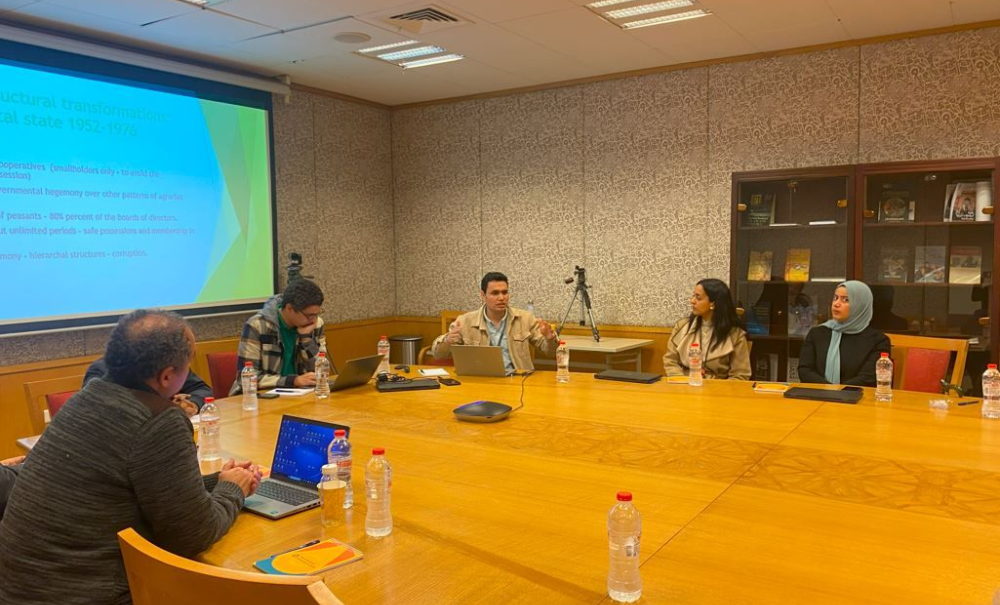
Roundtable Discussion on the Neoliberalization of Agricultural Cooperatives in Egypt
The Pathways from Neoliberalism: Voices from MENA project hosted a dynamic roundtable discussion aimed at gathering feedback on preliminary research conducted by Project Research Officer Mohamed Gamal on the evolution, and eventual neo-liberalization, of agricultural cooperatives throughout Egypt’s modern political economic history on February 25th. The roundtable brought together practitioners and academics from diverse sectors including the Egyptian public sector, civil society, and academia. Each participant contributed their expertise on agricultural cooperativism, fostering a stimulating and insightful dialogue.
This roundtable is part of the project’s research series on cooperatives as a potential pathway from neoliberalism, led by project research officer, Mohamed Gamal.
Cooperatives, as defined, are “people-centered enterprises owned, controlled, and run by and for their members to realize their common economic, social, and cultural needs and aspirations”. Primarily in the agricultural sector, cooperatives can counteract monopolies and empower farmers to access markets and assets by organizing themselves and pooling resources.
Gamal initiated the discussion by presenting his research findings, offering a comprehensive examination of the historical evolution of policies regulating agricultural cooperatives in Egypt, tracing back to the early 20th century. This analysis included a detailed review of the evolution of the legal frameworks governing cooperatives and highlighted significant developments and shifts shaping the current landscape of agricultural cooperatives amidst the neoliberal era.
Throughout the session, participants delved into key issues, discussing the challenges and opportunities facing agricultural cooperatives in Egypt’s evolving socioeconomic context. Challenges highlighted during the discussion included the lack of public awareness about cooperatives, as well as significant bureaucratic hurdles. It was noted that while the Egyptian constitution guarantees the right of public, private, and cooperative ownership, practical obstacles hinder cooperative initiatives.
The roundtable discussion fostered insightful dialogue among academic specialists and practitioners concerning the current and future trajectory of agricultural cooperatives in Egypt. This exchange of ideas incorporated a diverse array of practical and theoretical perspectives, enriching the ongoing research.